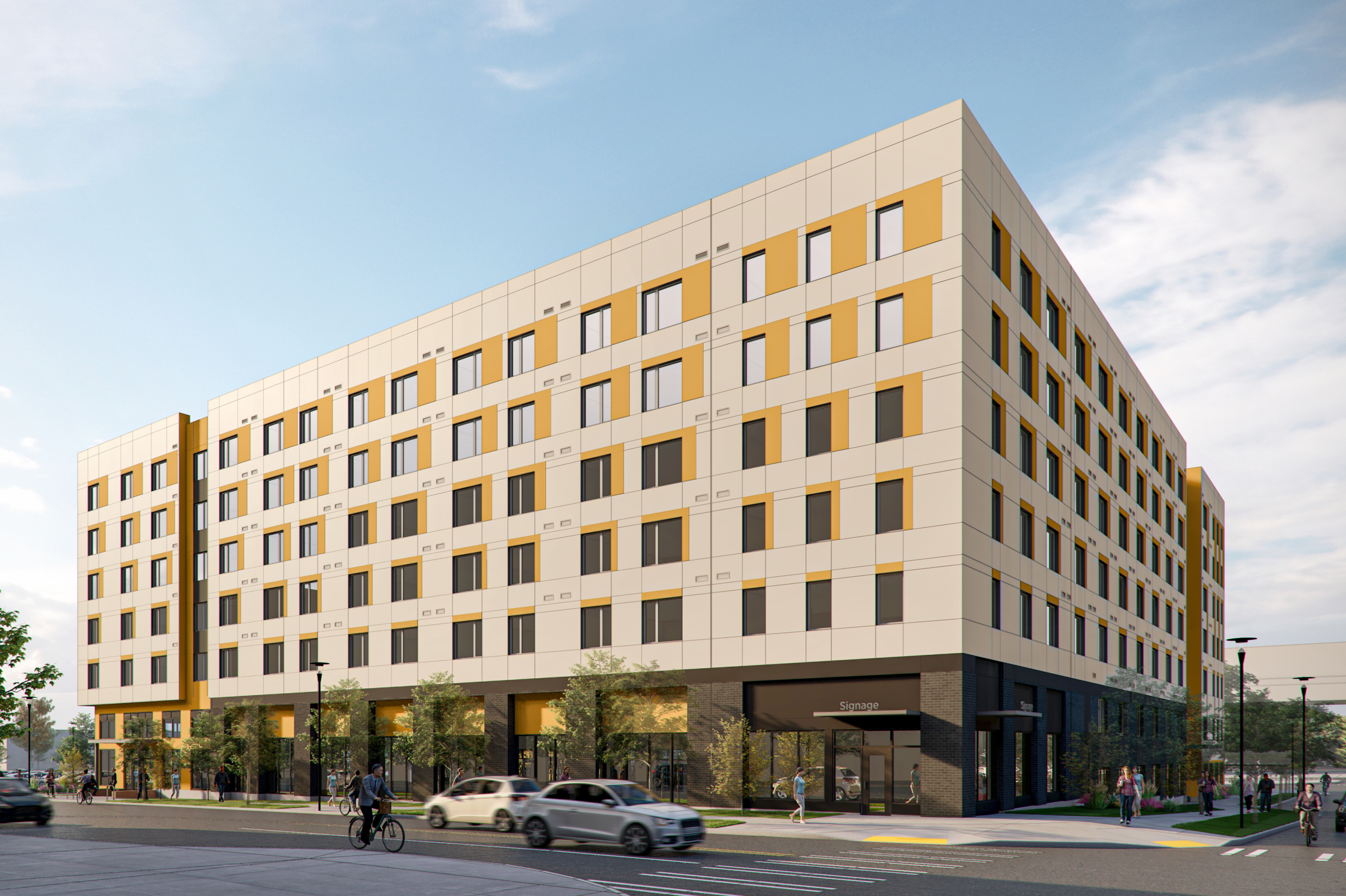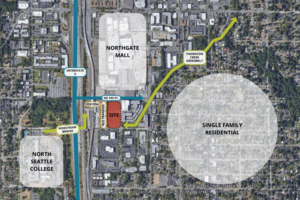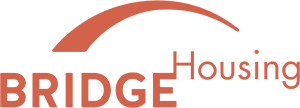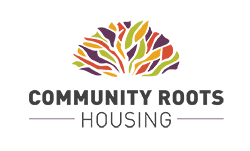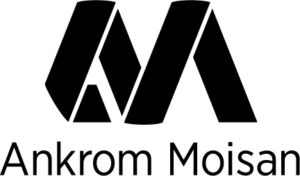Community Roots Housing and BRIDGE Housing are partnering to create affordable housing at the Northgate Transit HUB. The project will provide 232 affordable apartments at the site of the Northgate Link light rail station on land owned by King County Metro. The development will include a nearly 10,000-square-foot daycare on the ground floor. The building will be designed to meet Evergreen Sustainable Design Standards and leverage great transit opportunities such as bike lanes and bus connections.
The Northgate Equitable Transit Oriented Development (TOD) will create:
- An affordable, vibrant, and inclusive community where people of all incomes live close to where they work, play, and shop
- A community with increased mobility for pedestrians, transit riders and bicyclists served by the new transportation hub
- An early education space offering a critical asset in the neighborhood
- A design that leads in environmental sustainability by balancing urban growth and natural resource protection
